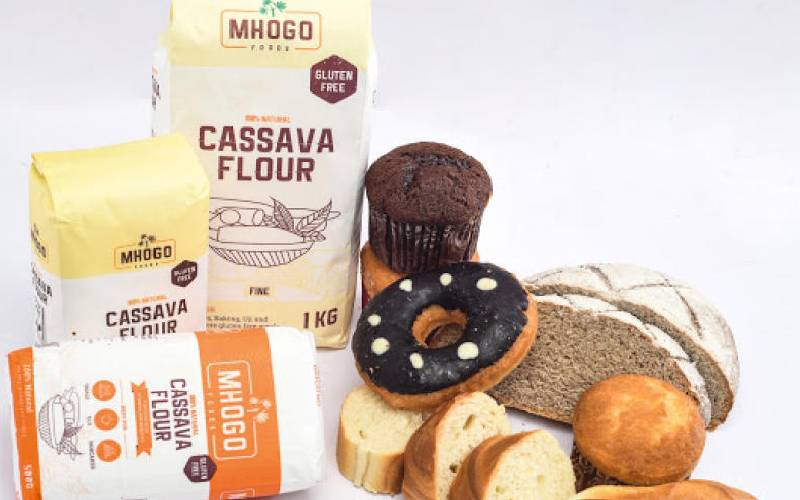
The Kenya Agricultural and Livestock Research Organisation (Kalro) has embarked on a series of training to help farmers improve cassava yields.
The training of trainers (ToTs) project targets extension staff and service providers from counties implementing Kenya Climate Smart Agricultural Productivity (KCSAP). After going through the two-week programme, the trainers are expected to pass on these skills and knowledge to farmers to help them boost their crop yields.
Speaking during the cassava value chain ToTs at Kalro in Mtwapa, Kilifi County last week, Kalro director general Dr Eliud Kireger said cassava is the third most important food and cash crop and world’s most widely grown starch storage root crop.
It accounts for a third of the total production of staple food crops in sub-Saharan Africa and is the most resilient to climate change among all major African crops.
Resilient crop
Additionally, Kireger noted that cassava is an important source of dietary energy for more than 500 million people in developing countries.
“In Kenya production levels are estimated at 83,486 ha with annual production of 1.5 tonnes. At a price of Sh15 per kg, this translates to Sh22.2 billion per year,’’ Kireger pointed out.
More than 500,000 small holder farmers are targeted in Kisumu, Busia and Lamu counties in the cassava value chain project which intends to improve food and nutritional security especially for women, children, youth and vulnerable groups.
The project sponsored by World Bank, is expected to have ripple benefits on cassava productivity in the country with beneficiaries estimated at about 521,500 households of smallholder farmers, agro-pastoralists and pastoralists.
As part of the training, the attendees are being taught value-addition of the crop to improve its market value and shelf life.
It has been noted that farmers in the Coast have been incurring losses due to lack of markets for their cassava but with the new skills and knowledge, they will have opportunities for crops diversification and end user products.
Kireger noted that the training would ensure food security and encourage uptake of traditional foods which are healthier and boost immunity which is key during this Covid-19 pandemic.
The DG also encouraged farmers to grow other nutritious traditional foods like sweet potatoes, green grams, potatoes, which can be value added, for better returns.
Highlights
During the training, farmers learnt how to select best seeds for their farms for maximum yields, post harvesting and storage techniques to avoid losses.
Other skills learnt include cassava crop value addition and diversification in end user products which can be preserved for longer usage ensuring food security.
Cassava is often eaten raw, boiled, fried but it can also be ground into flour to make tasty snacks like biscuits, mandazi and cookies.
When not mature and eaten raw, Kireger noted that the cassava is often linked with poisonous hydrochloride cyanide.
On value-addition, he said there are proposed 2018 flour blending policy regulations to create market linkages between farmers and processors. In the policy, cassava has been proposed to be used with maize or wheat to produce highly nutritious composite flour.
Kireger said processors have been complaining about a lack of adequate supply of the crop while on the other hand farmers complain of a lack of market thus the need for linkage.
Going forward, he encouraged farmers to form cooperatives and groups to enhance bargaining power as well build up sufficient supply to meet processors huge orders.
The 2012-2018 statistics show that cassava production in Kenya has been on decline by 44 per cent due to lack of high-yielding varieties, damages due to cassava diseases, poor agronomic practices, post-harvest losses, poor storage methods, lack of value-addition and product development and lack of a reliable market.
Kireger said development and dissemination of cassava climate smart technologies; innovation and management practices would reverse the declining productivity.
Busia, Kilifi, Migori, Homa Bay and Kwale counties lead in cassava-production in the country. Other leading producers are Siaya, Machakos, Kisumu, Lamu, Bungoma, Makueni and Kitui.
Dr Teresia Munga, Director Industrial Crops Research Institute (ICRI) noted that farmers have been facing challenges of low yields because of growing local cassava varieties.
To reverse the trend, Munga said they are training the farmers now on how to multiply their crop yields by planting the best cassava varieties and using tissue culture varieties.
Kalro is also training the cassava farmers on management of cassava crop by planting the right crop population and best agronomical practises.
The organisation has developed six varieties of cassava crop that mature early, with high yields and are resistant to diseases.
Want to get latest farming tips and videos?
Join Us
 The Standard Group Plc is a multi-media organization
with investments in media platforms spanning newspaper print operations,
television, radio broadcasting, digital and online services. The Standard Group
is recognized as a leading multi-media house in Kenya with a key influence in
matters of national and international interest.
The Standard Group Plc is a multi-media organization
with investments in media platforms spanning newspaper print operations,
television, radio broadcasting, digital and online services. The Standard Group
is recognized as a leading multi-media house in Kenya with a key influence in
matters of national and international interest.
 The Standard Group Plc is a multi-media organization
with investments in media platforms spanning newspaper print operations,
television, radio broadcasting, digital and online services. The Standard Group
is recognized as a leading multi-media house in Kenya with a key influence in
matters of national and international interest.
The Standard Group Plc is a multi-media organization
with investments in media platforms spanning newspaper print operations,
television, radio broadcasting, digital and online services. The Standard Group
is recognized as a leading multi-media house in Kenya with a key influence in
matters of national and international interest.



